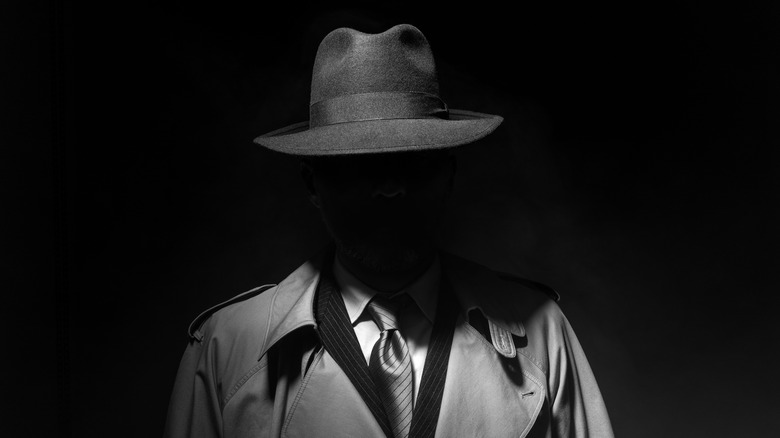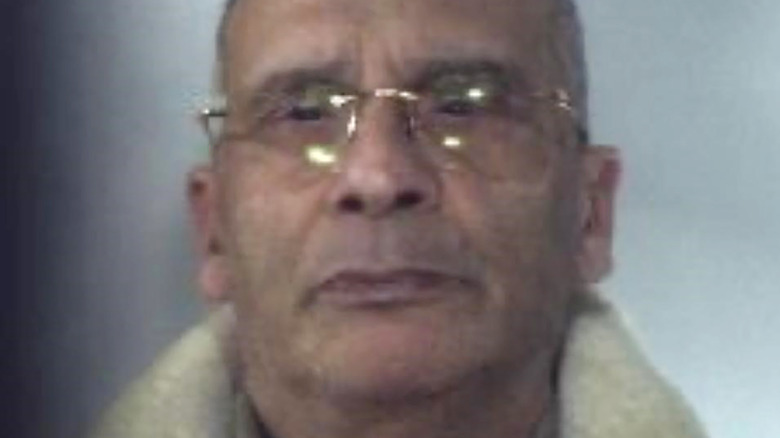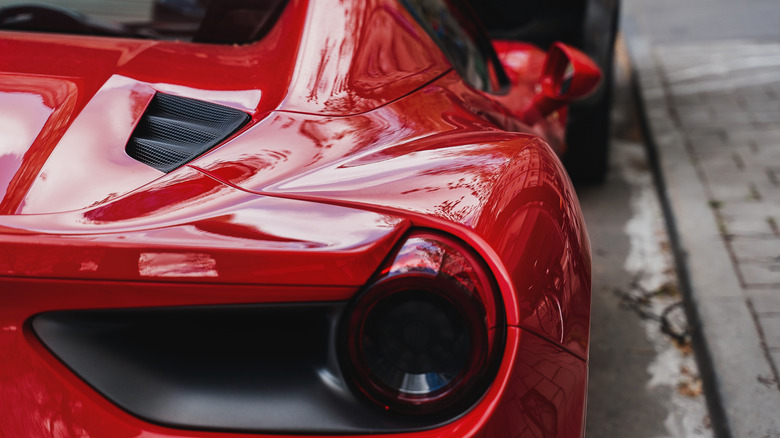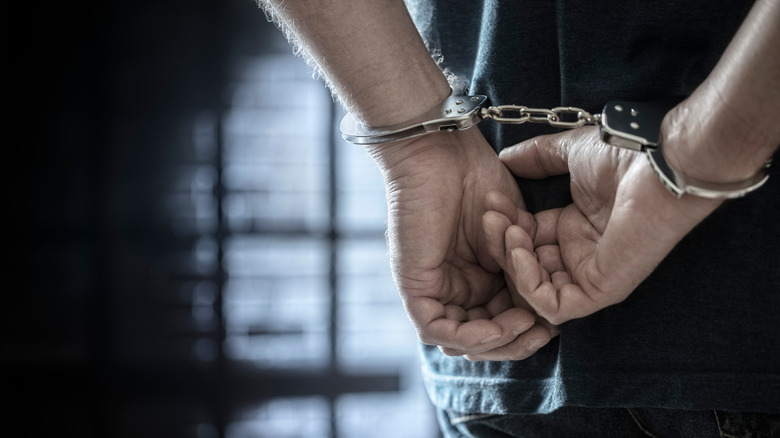Who Is Mafia Boss Matteo Messina Denaro?
They're a romanticized fixture in movies like "The Godfather" franchise and "Goodfellas," but make no mistake: The mafia is real, and there is nothing glamorous or admirable about what they do. Mafia organizations, and the people who work within them, are murderers, human traffickers, extorters, and all manner of other unsavory criminals. And according to the Global Initiative Against Transnational Organized Crime, they're particularly powerful in Italy, where some younger members even flaunt their affiliations and crimes on social media.
Whether or not Italy is winning its war against the mafia remains to be seen, but the country scored an important victory in January 2023. As the Associated Press reports, on January 16, police announced the arrest of Matteo Messina Denaro, the country's most-wanted fugitive, who had been on the run since the 1990s. And it seems that his failing health helped do him in, as he was arrested at a Palermo cancer clinic.
Born Into The Mob
A "job" (for lack of a better word) in the mafia isn't something that you can just happen into. You have to know somebody, and in Matteo Messina Denaro's case, his "in" was none other than his own father. As Al Jazeera reports, he was born on April 26, 1962, in Castelvetrano. His father and his godfather were both locally powerful mob men. According to France24, Matteo was able to use a gun by the age of 14. By the age of 17, he had run afoul of the law when he was involved in a conflict between rival clans. It was also during his late teens when he committed what may be his first murder, in the case of a hotel owner who complained about "little mafiosos" in town. Unfortunately for Nicola Consales, his daughter was the mistress of a teenage mafioso named Matteo Messina Denaro, and he paid for this complaint with his life.
As The Guardian reports, Denaro, nicknamed "Diabolik" ("Devilish") and sometimes "U Siccu" ("the Skinny One"), did well in the family business, which is described as including illicit operations in wind energy, waste disposal and retail industries.
Not Your Typical Mafioso
Matteo Messina Denaro had money, status, and a fanatical desire to live like it. According to The Guardian, with the help of politicians and businessmen who illicitly helped fund his lifestyle, he was fond of $30,000 watches, finely-tailored suits, and, according to the Globe and Mail, a fleet of expensive sports cars.
His life differed from that of a typical mafioso in a number of ways, however. For example, he was known to travel abroad, in contrast to regular Italian mafiosi, who prefer to stay at home. "He is not the classic Mafioso, like Provenzano, who you would find in the country eating his ricotta cheese and apple," said Italian state prosecutor Teresa Principato.
He was also known to womanize, which, perhaps surprisingly, mafiosi don't generally do. Despite being cold-blooded murderers, the more-traditional mafiosi apparently embrace conservative values when it comes to family. Denaro said nuts to that, and was alleged to have fathered at least two illegitimate children, according to The Washington Post.
Gruesome Crimes
It would be almost impossible to say how many people were killed by Matteo Messina Denaro; and further still, the line between how many people he killed directly, as opposed to on his orders, is fuzzy. Denaro himself once bragged that he killed so many people that he could "fill a cemetery, all by myself," as The Guardian reports. As such, the following list of crimes attributed to him is only meant to be representative of a larger picture.
As France24 notes, he is believed to have murdered, or ordered the murder of, rival boss Vincenzo Milazzo and Milazzo's girlfriend, who was three months pregnant at the time. A 1992 bombing, which Denaro was likely involved in, claimed the lives of two Italian anti-mafia prosecutors, according to USA Today. He is also attached to the kidnapping of the 12-year-old son of a mafioso who turned informant; the young lad was strangled, his body dissolved in a vat of acid.
In 2002, according to the Globe and Mail, he was convicted in absentia of a series of bombings and attacks, including one that killed five people and damaged priceless art. Already a fugitive at this time, he would remain on the lam for the next two decades.
Life On The Run
Though known for ostentatious displays of his wealth, Matteo Messina Denaro was also extremely careful in avoiding getting caught, using tools of chicanery and obfuscation that served him well across four decades on the run.
As mentioned previously, he was known to travel outside of Italy, a rarity for Italian mafiosi. However, he doubtless used forged documents, as there were few photographs of him, according to the Globe and Mail. Based on what few pictures authorities had, dating back to the 1980s, authorities had to digitally age him to even know what he looked like, according to The Guardian. Further still, rumor has it that he got plastic surgery to disguise his appearance, and may have even had his fingerprints removed.
He also took great pains to avoid a digital trail. He did not use cell phones or computers – technology that could lead to his location being sussed – and instead communicated in the mafia tradition of leaving handwritten letters — "pizzini," as they're called in the local parlance — at various drop points, according to the Associated Press.
An Anticlimactic Capture
Mattew Messina Denaro may have been able to escape the long arm of the law for three decades, but one force he could not outfox was his own health. It would be his health issues that would lead to his capture.
Specifically, as the Associated Press reports, authorities closed in on him because he was seeking treatment at a Palermo medical clinic. Although it's not known what was/is ailing him, the La Maddalena clinic is known to treat cancer patients. Authorities say that Denaro, now 60, had been getting treatment there for at least a year under an assumed name.
His capture was anticlimactic. When police surrounded the building, Denaro, according to The Guardian, at first tried to escape. However, realizing the jig was up, he surrendered peacefully, to the applause of other patients.
"This is a great victory for the Italian state, which shows we should never surrender to the mafia. My warmest thanks and those of the entire government go to the police forces ... and the Palermo prosecutor's office, for the capture of the most significant figure in the mafia," said Italian Prime Minister Giorgia Meloni.





